Avignon 2019-Outwitting the Devil: a Mesmerizing Dance and an Hypnotic Experience created by Akram Khan
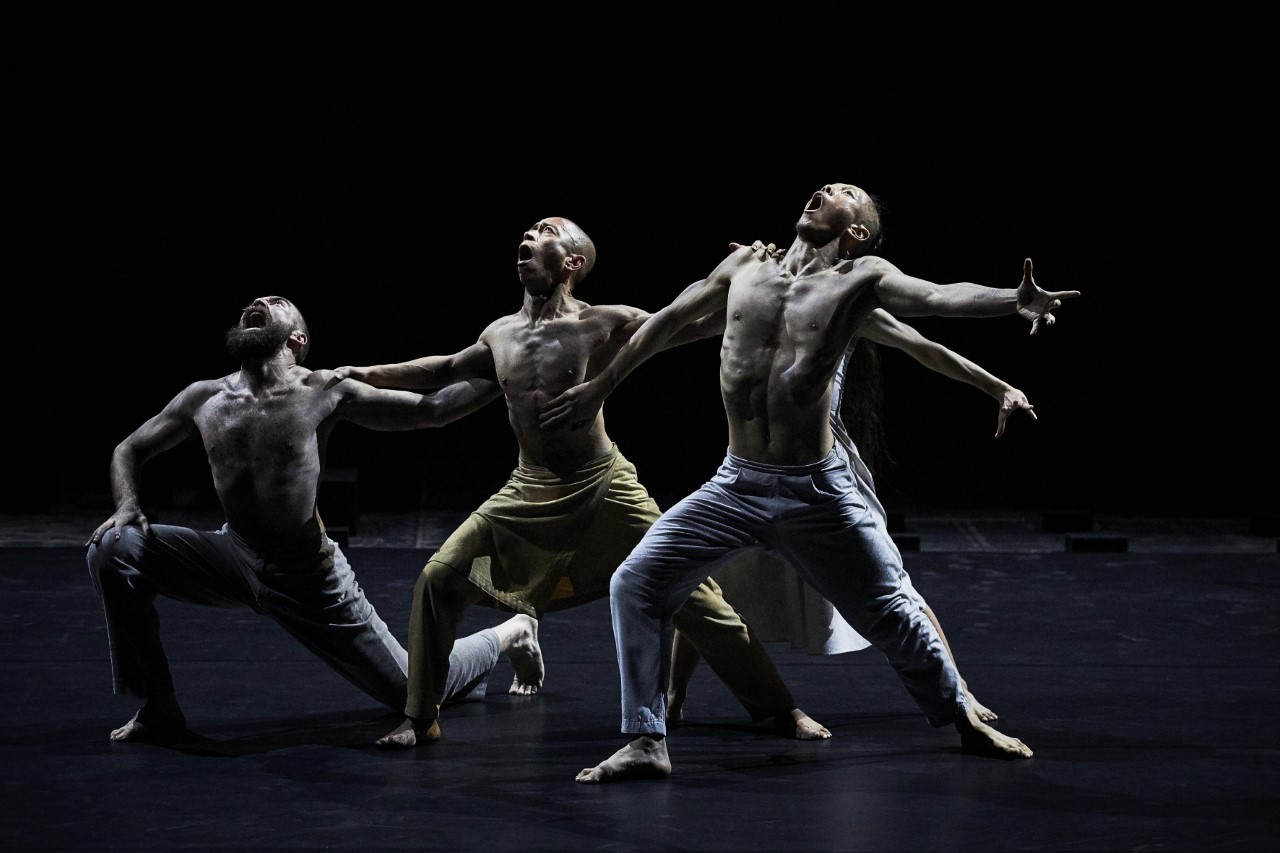
Outwitting The Devil, Akram Khan’s latest work, truly stood out within the line up of very diverse works featured at the 2019 Avignon Festival. Performed at the magnificent Cour d’honneur du Palais des Papes this work resonated the architectural grandeur of the space and echoed its spiritual splendour. It reflected the palace’s glory through its own choreography, mythic themes and hypnotic sound and lighting designs.
Akram Khan, a British dancer and choreographer of Bangladeshi descent, captivated the world of contemporary dance in the early 2000s. A student of the kathak, a traditional Indian dance, he performed in Peter Brook’s Mahâbhârata. Later he created highly experimental solo and ensemble work that would draw his viewers’ attention to the hybrid language of dance as invented by Khan himself, the language in which traditional elements of the Indian dance would neighbor and dialogue with many components of western performance. To enrich his vocabulary, Akram Khan engaged dramatic narrative and humor, approximating in his style the so-called tanz-teatr as developed by the German choreographer Pina Bausch. …
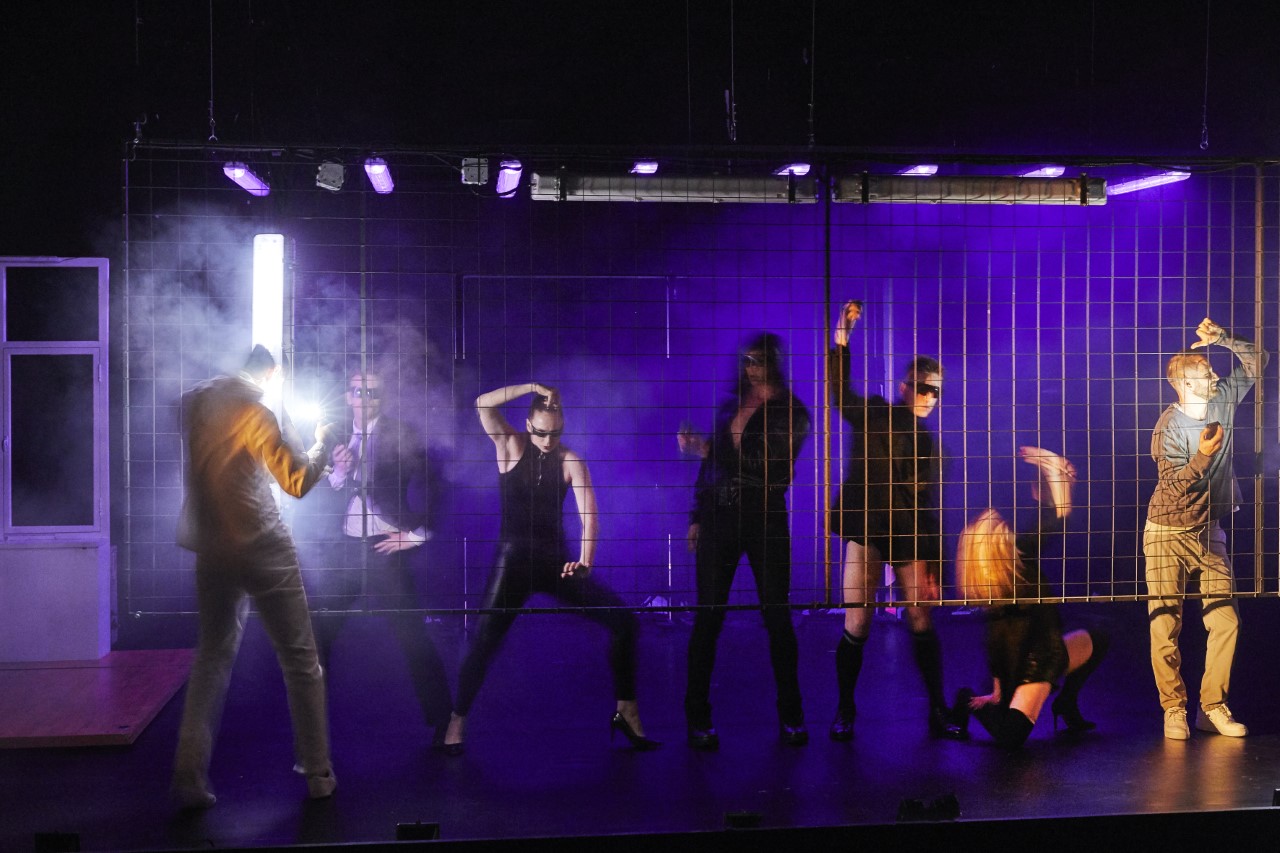
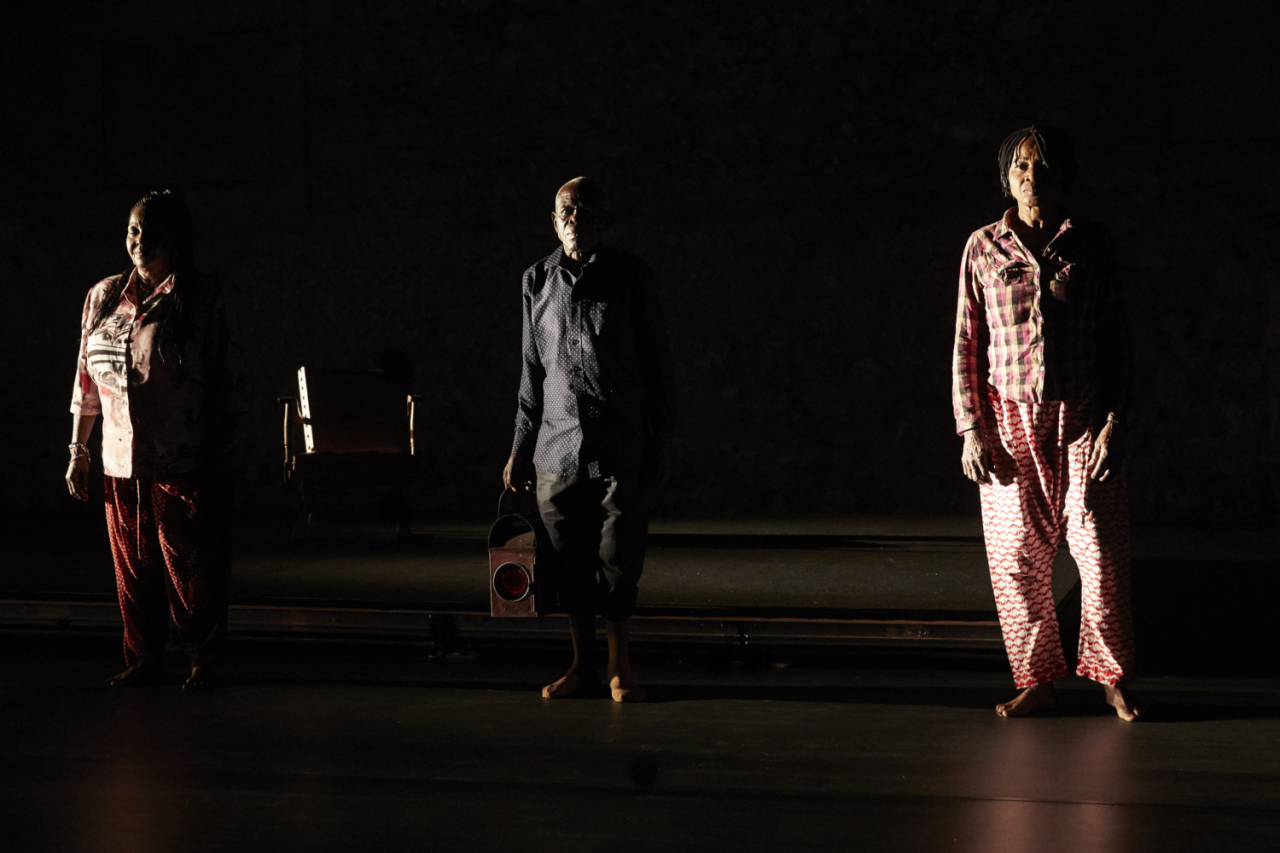
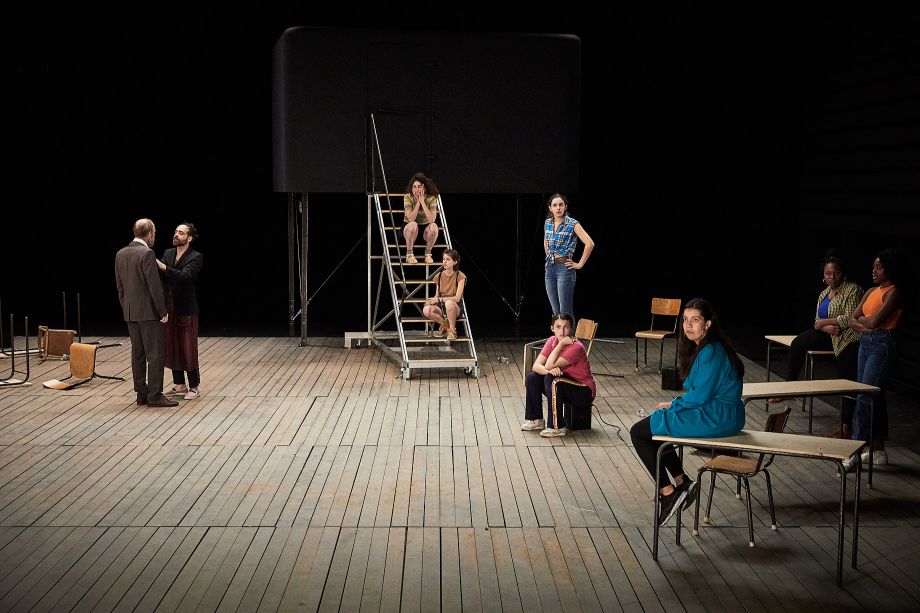
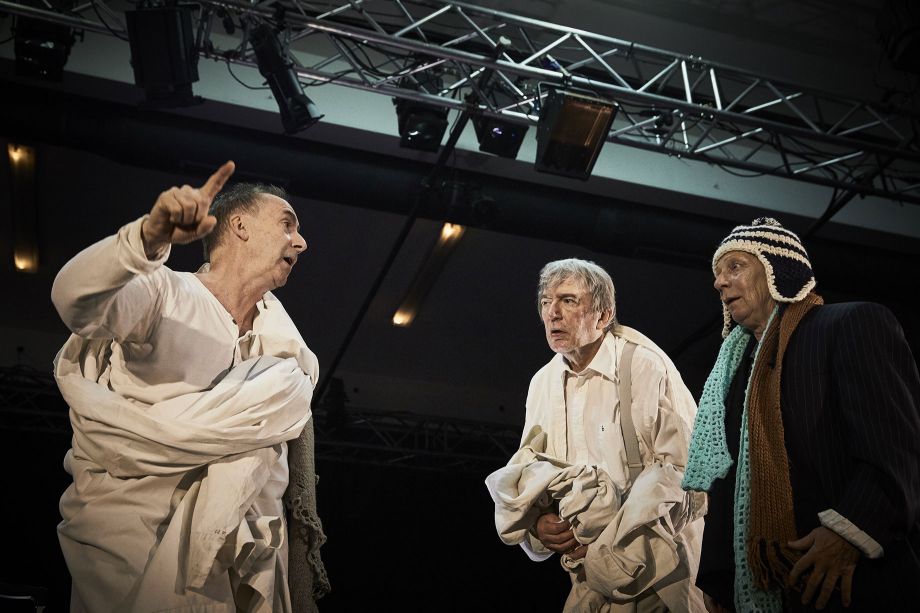
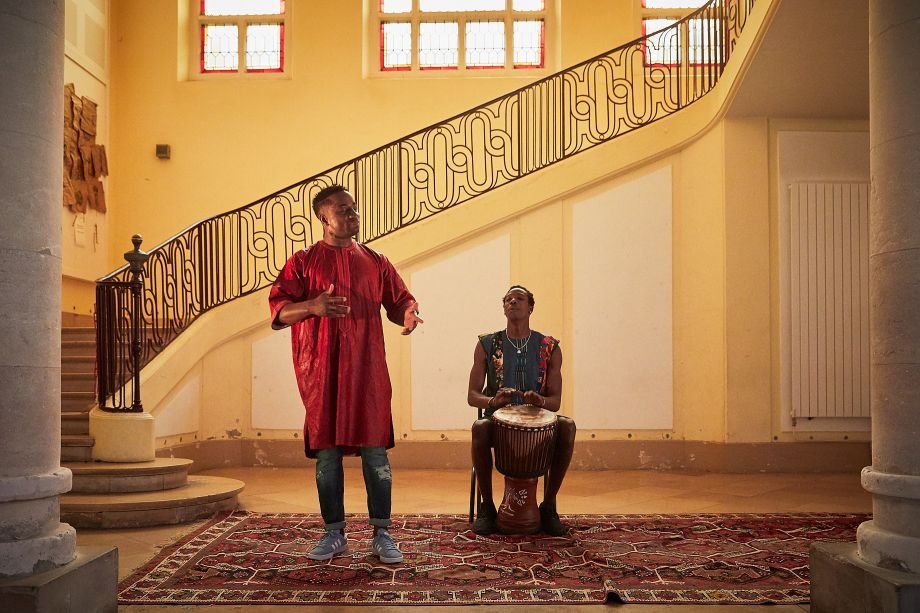
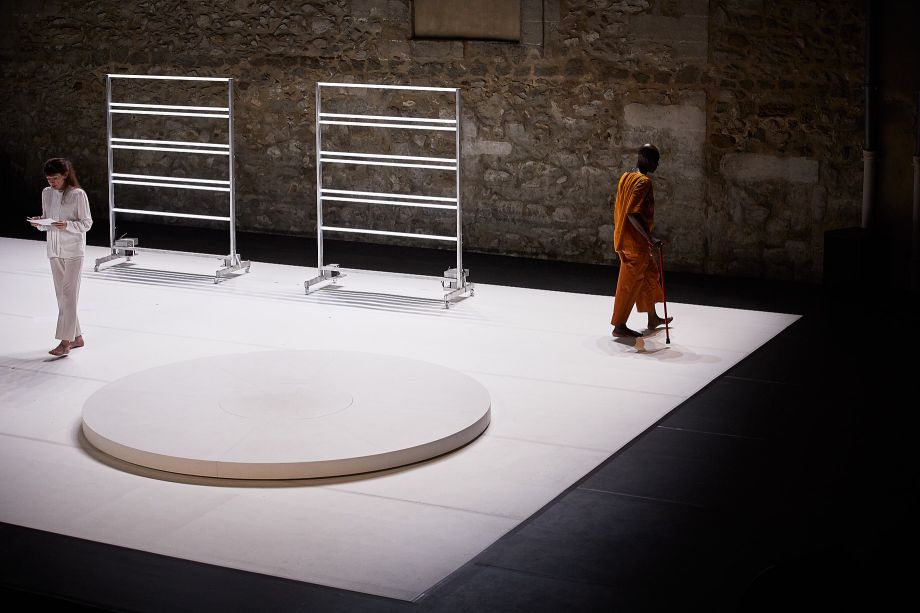
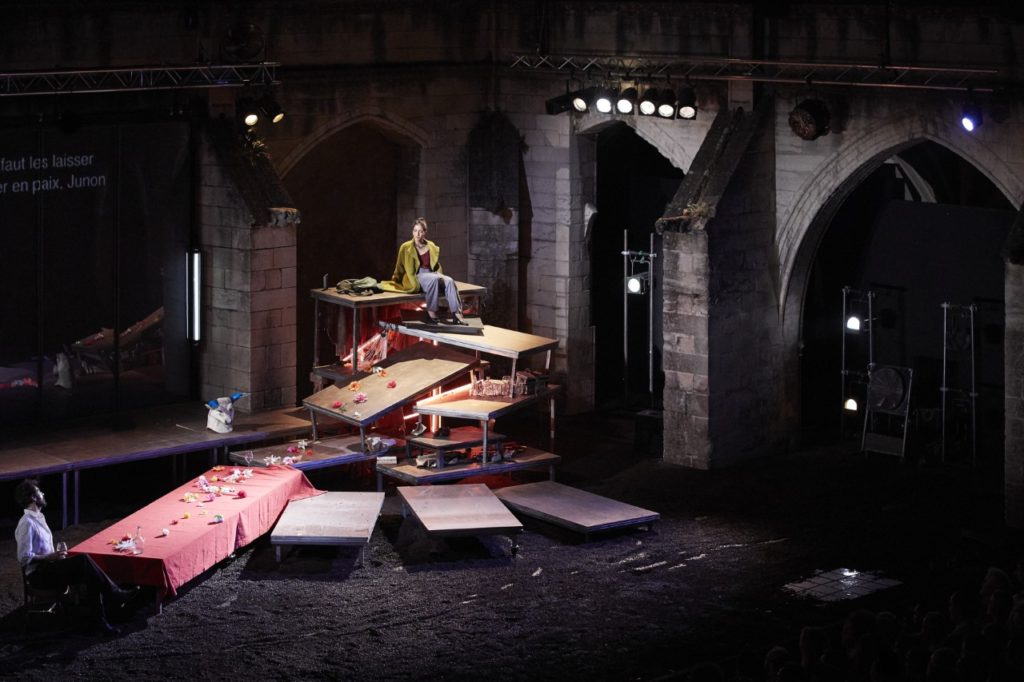
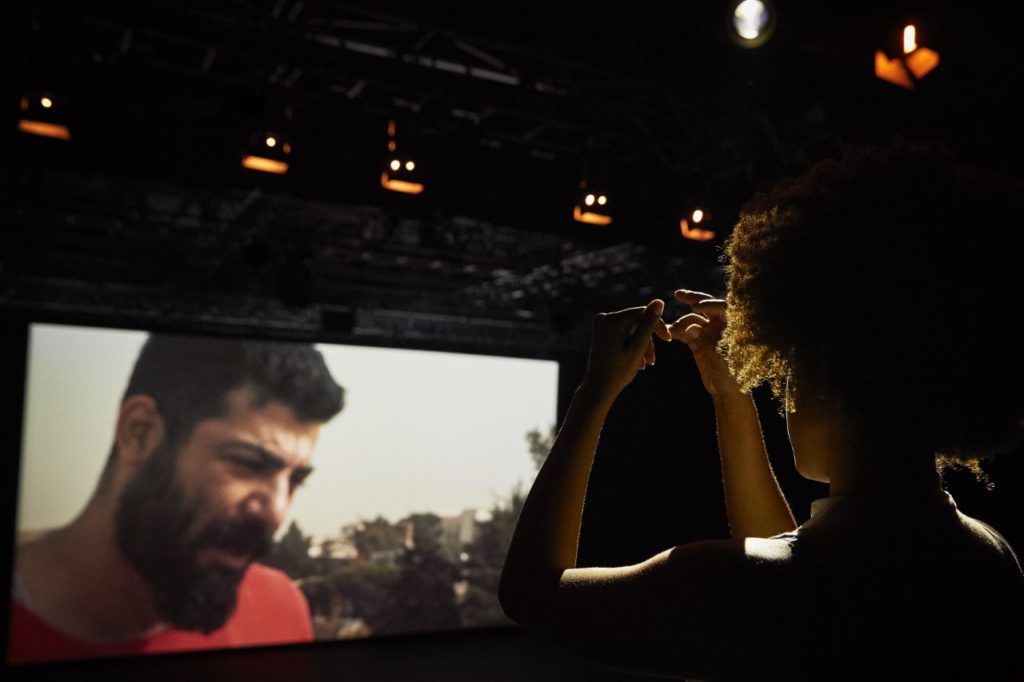
 Voici l’exemple d’une réussite totale : un spectacle à la fois actuel et intemporel, drôle et dramatique, émouvant et esthétique, tout y est. C’est l’histoire de six femmes en prison, qui se retrouvent dans la bibliothèque le soir de Noël et tentent de conjurer la tristesse par le jeu et la solidarité. Histoire éminemment théâtrale où l’individu conquiert sa liberté par le jeu, le rôle, le mime et le texte. Drôlerie suprême, les filles choisissent d’investir un drame de Musset, et pas n’importe lequel : On ne badine pas avec l’amour. Mohamed Kacimi nous a déjà habitués à ses performances dramatiques : on a vu à Avignon en 2017 Moi, la mort, je l’aime, comme vous aimez la vie. Il réussit comme personne à s’emparer des thèmes les plus tragiques et les plus actuels sans sombrer dans le pathos. Son écriture se signale par une finesse et une justesse d’analyse hors pair. Elle nous fait vibrer en mêlant brillamment le comique et le grave. Ses personnages sont alternativement touchants et drôles. Barbara, Rosa, Marylou, Zélie, Lily et Frida sont des femmes ordinaires : leur crime est d’avoir trop aimé ou d’avoir été trop pauvres pour élever un enfant. Femmes détenues, que personne ne vient visiter, et surtout pas leurs compagnons (« courage, fuyons »), coupées du monde mais solidaires dans leur malheur et ingénieuses. Et voilà qu’elles découvrent le pouvoir de la littérature, la force des mots si on les habite, la magie du théâtre qui transfigure la vie.
Voici l’exemple d’une réussite totale : un spectacle à la fois actuel et intemporel, drôle et dramatique, émouvant et esthétique, tout y est. C’est l’histoire de six femmes en prison, qui se retrouvent dans la bibliothèque le soir de Noël et tentent de conjurer la tristesse par le jeu et la solidarité. Histoire éminemment théâtrale où l’individu conquiert sa liberté par le jeu, le rôle, le mime et le texte. Drôlerie suprême, les filles choisissent d’investir un drame de Musset, et pas n’importe lequel : On ne badine pas avec l’amour. Mohamed Kacimi nous a déjà habitués à ses performances dramatiques : on a vu à Avignon en 2017 Moi, la mort, je l’aime, comme vous aimez la vie. Il réussit comme personne à s’emparer des thèmes les plus tragiques et les plus actuels sans sombrer dans le pathos. Son écriture se signale par une finesse et une justesse d’analyse hors pair. Elle nous fait vibrer en mêlant brillamment le comique et le grave. Ses personnages sont alternativement touchants et drôles. Barbara, Rosa, Marylou, Zélie, Lily et Frida sont des femmes ordinaires : leur crime est d’avoir trop aimé ou d’avoir été trop pauvres pour élever un enfant. Femmes détenues, que personne ne vient visiter, et surtout pas leurs compagnons (« courage, fuyons »), coupées du monde mais solidaires dans leur malheur et ingénieuses. Et voilà qu’elles découvrent le pouvoir de la littérature, la force des mots si on les habite, la magie du théâtre qui transfigure la vie.